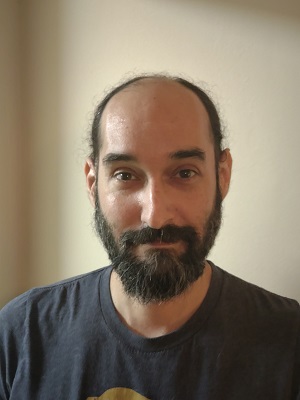
A Promise Is the Words that Make It
Contributor’s Marginalia: John A. Nieves responding to Melissa Crowe’s “Always I’ve been trying to show you”
Melissa Crowe’s poem, “Always I have been trying to show you,” invites us into a world of half-light and longing where distance and wish collapse into the ghost of a promise that, as the title suggests, lives past the moments sewn into the poem. The intimacy creeps in quickly with “always there are other / eyes from which to hide” as the poem opens out to the past scene while inviting the reader into the “you” position—suggesting that all eyes except those on the poem are not welcome. And in this space between the “I” and “you” we are taught how longing and desire are always a function of distance, how light reveals (the body) and conceals (the body of water), and how when what is shown and what is secret combine (the bodies on the lake), the fulfilment of that longing ends on one form of distance (physical) and creates another (temporal), and a moment of passion transmutes into a memory.
The poem shows us the dance between ache and the shadows that cover it, how delicately, and as this poem stands on the page, and as the scene in the cabin unfolds, silently. And the magic of this ache is made manifest through the poem itself—like a promise, the said thing is the thing. WE understand what it means to create distance (“desire and barriers / to desire”), to close distance (“I let you see me again, touch me”), and to reestablish that distance (“I’m sorry—that if in this we are not the same”). The shared moment reifies that we are always alone within ourselves and the gulf of time can only be closed to intimacy through memory, which is an illusion, which is a wish for a when we can never reach again. In “Always I have been trying to show you,” Crowe walks the reader up to that chasm, that uncloseable distance and says we are almost always here, says, by the time you read this for the first time, that moment has already slid irrevocably away, says, we are creatures of distance, let’s not forget those moments when that distance is the smallest, even if they are so far gone I can only “try to show you.”
